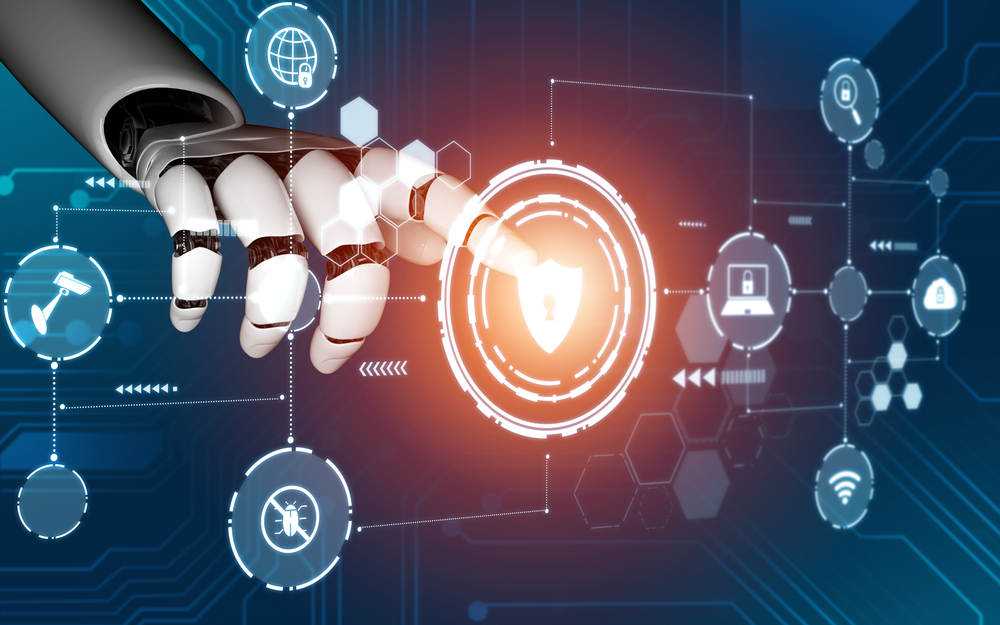
How LLMs could revolutionize ad blocking
Ad blocking software has traditionally relied on filter lists. These need time consuming and regular maintenance in order to keep them up to date and effective.
There have been previous attempts to update ad blocking using machine learning, but new research from AdGuard looks at the potential to use large language models (LLMs) to improve the way it works.

Bridging the gap between legacy systems and AI [Q&A]
Many companies are still heavily reliant on legacy systems, which can lead to high maintenance costs, limited flexibility, and increased security risks. All of which can hold back AI integration.
We spoke to Jorge Lopez, CEO of Jalasoft, about the critical role legacy systems play in today’s rapidly evolving AI landscape and how organizations can modernize strategically without disrupting core operations.

Developers more productive with AI but only 18 percent fully trust it
New research finds that 85 percent of developers report higher productivity with AI, yet only 18 percent say that they fully trust it.
The study from Techreviewer was conducted among senior developers, CTOs, and tech executives from 19 countries. It shows that 64 percent of developers use AI tools every day, with only two percent never using them. ChatGPT leads in popularity at 84 percent usage, followed by Claude (64 percent), Copilot (56 percent), and Cursor (53 percent).

How AI-powered digital employee experience programs are reshaping IT [Q&A]
Digital employee experience, or DEX, is about how employees engage with the technology and services they use every day: everything from laptops, apps, collaboration tools to networks.
We spoke to Dean Fernandes, CTO of NWN.ai to find out more about the importance of DEX and how it’s changing the world of IT.

Security teams want automation but 96 percent face problems implementing it
A new survey of 750 senior cyber security professionals across the US, UK and Australia, carried out by Opinion Matters for ThreatQuotient, finds 97 percent now regard automation, increasingly powered by AI technologies, as essential to business operations.
However, despite 49 percent of respondents obtaining net new budget allocation for cybersecurity automation this year -- up from 39 percent last year -- 96 percent still face persistent challenges, particularly around technology limitations, lack of trust in the outcomes of automated processes, and insufficient time to implement solutions.

How AI is reshaping the future of healthcare [Q&A]
Artificial intelligence is reshaping healthcare systems across the globe. But to see where it stands today, and where it could be in the coming years, we need to better understand how AI can accelerate patient discharges, improve cancer detection, and support overstretched staff, while also addressing the barriers that have slowed adoption.
AI won’t replace doctors, but it can save healthcare. To find out how we spoke to prominent CIO with decades of healthcare experience, Richard Corbridge. Richard was previously the Chief Information Officer for the Health Service Executive in Ireland and was instrumental in the reform of the Irish healthcare technology system.

AI-driven fake shoppers target Black Friday retailers
As we approach Black Friday and the annual frenzy of online shopping a new report uncovers widespread vulnerabilities in major retail platforms as agentic commerce takes hold.
The research from fraud prevention specialist Data Dome shows that threat actors are exploiting the same automation paths used by consumers to automate browsing, comparison and checkout in order to scale account fraud with an army of fake shoppers.

Organizations overconfident in dealing with cybersecurity incidents
New research from Immersive Labs reveals a widening gap between confidence and capability in cybersecurity.
While nearly every organization (94 percent) believes it can handle a major incident, the data tells a different story. According to Immersive’s analysis, average decision accuracy is just 22 percent, and the average containment time is 29 hours.

What do you need more -- a chief AI officer or better data? [Q&A]
According to recent research nearly half of FTSE 100 companies now have a Chief AI Officer (CAIO) -- with 42 percent of those hires made in just the past year.
Companies are clearly rushing to signal their AI credentials at board level, but is this a meaningful shift, or simply another wave of hype-led decision making? We spoke to Francisco Mateo-Sidron, SVP and head of EMEA at Cloudera, who believes that a CAIO alone can’t drive real results if enterprises don’t have data that’s built on solid foundations.

Modern workforce integration -- why AI agents need the same oversight as their human counterparts [Q&A]
Agentic AI is rapidly moving from concept to reality, prompting organizations globally to rethink how they integrate these technologies into their business operations. The use of AI agents in daily workflows is set to rise dramatically in the coming years, raising questions over what organizations need to do to manage them effectively, and what might happen if they fail to do so.
We spoke with Ann Maya, EMEA CTO at Boomi, about the evolution of AI agents, the steps businesses should be taking ahead of deployment, and why the principles of human workforce management may hold the key to responsible use.

Rise in agentic identities leads to increased risk
The AI wave is translating into an increased number of AI agents in the workplace, which equates to a surge of both non-human identities (NHIs) and agentic identities. This is resulting in an urgent focus for CIOs and CISOs on identity threats and recovery.
New research from Rubrik Zero Labs, based on a survey by Wakefield Research of over 1,600 IT security decision makers, finds 89 percent of respondents have fully or partially incorporated AI agents into their identity infrastructure, and an additional 10 percent have plans to.

How AI is changing the role of IT leaders
Artificial intelligence has redefined what it means to lead in IT, with 63 percent of IT leaders
reporting that their roles have evolved due to advances in AI.
A study, from IT management platform Atera, finds today’s IT leaders are increasingly responsible for driving business value. 49 percent cite business value leadership -- shaping strategy and translating AI into revenue and growth – as the top area of increased importance, and 47 percent point to orchestrating human-AI collaboration as a key change in their roles.

1 in 7 consumers fall victim to online scams
A new survey from Bitdefender, of more than 7,000 consumers worldwide, finds that 14 percent of respondents (one in seven) report falling victim to scams in the past year, with an additional four percent unsure.
Based on an average scam loss of $545, that equates to over $534,000 lost among survey participants alone. The US led in scam victims at 17 percent, followed by the UK (16 percent) and Australia (16 percent), while France had the lowest at 11 percent.

AI use in the workplace soars with testing leading the way
A new report, based on data from 3.9 million skills tests taken by employment candidates globally, reveals a dramatic shift towards AI proficiency and cognitive capability across the global workforce.
The data from TestGorilla shows AI testing recorded the highest growth, up 166 percent in comparison to the previous year. Following closely are coding debugging (+133 percent), computer literacy (+77 percent) and data structures/arrays (+73 percent). Together, these underline the urgent demand for practical coding competence and AI fluency.

Maximizing AI ROI In healthcare by establishing an automation-first mindset [Q&A]
AI use cases in healthcare continue to expand, and organizations are identifying opportunities to leverage automation technologies to improve existing workflows.
However, after years of implementing new tooling and expanding tech stacks for better efficiency and backend processes, most organizations are left with disparate systems and datasets that make AI initiatives difficult to put into practice. IT teams are now forced to work backwards, embarking on time and resource consuming efforts to determine how automation can work within the parameters of these fragmented processes.
